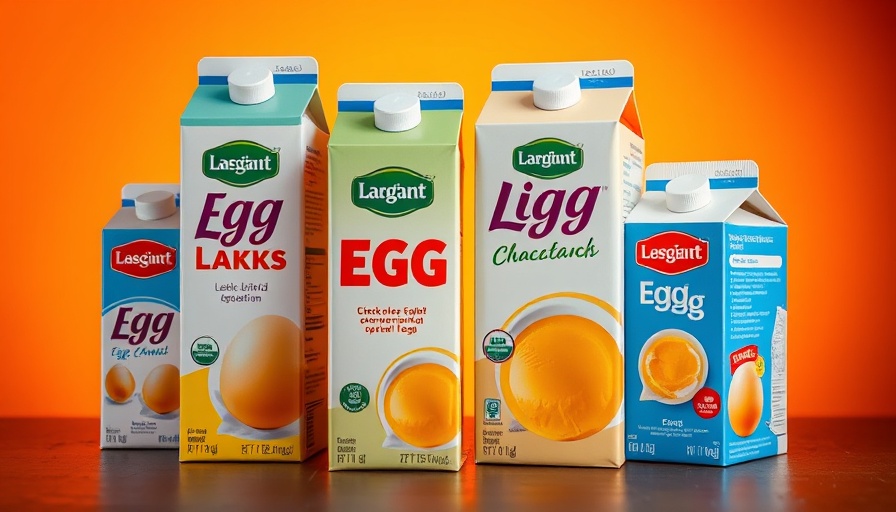
Liquid Egg Products Under Scrutiny: What You Need to Know
In an alarming turn of events, liquid egg products from two well-known brands have been recalled due to potential contamination with a cleaning solution commonly associated with bleach. Specifically, over 212,000 pounds of Egg Beaters and Bob Evans liquid egg substitutes have been pulled from shelves, and consumers nationwide should take heed. This recall, initiated by Cargill Kitchen Solutions, has raised significant concerns about food safety standards and consumer health.
Understanding the Contamination Risks
The U.S. Department of Agriculture's Food Safety Inspection Service (FSIS) revealed that the contamination stems from sodium hypochlorite, an ingredient found in many household cleaning products. While it’s crucial to note that FSIS assessed the health risks as being relatively low, they urged consumers to monitor any recalled products closely. Health risks from concentrated bleach can lead to severe health consequences, including gastrointestinal issues or even fatality. Despite the reassurance from authorities that ingesting the contaminated products does not pose a significant health threat, caution remains paramount.
How This Affects Food Safety Standards
This recall raises broader questions about industry practices in food safety, particularly as the USDA responded to a tip-off regarding the contamination. The swift action taken illustrates the importance of having systems in place for tracking food safety concerns. Despite the recall being characterized as 'Class III,' which indicates a low risk, it’s a stark reminder of how vulnerable consumers can be to foodborne contaminants. With food safety issues being a hot topic, the incident amplifies calls for stricter scrutinies of manufacturing processes still in effect.
Consumer Response: What Action Should You Take?
If you have purchased these products, it's crucial to recognize the specifics of the recall. The recalled items include four different types of liquid egg substitutes produced on March 12 and 13 and feature the establishment number "G1804". Consumers are advised to dispose of these items or return them to the point of purchase, highlighting the responsibility that lies with individuals to remain vigilant about the food they consume.
The Bigger Picture: Food Supply Chains and Consumer Safety
This incident is not just about liquid eggs; it’s a reflection of broader issues within the food supply chain. As consumers face skyrocketing egg prices, recalls like this can serve as a painful reminder of the gaps in quality assurance practices. As food producers scale up their output to meet rising demand, the potential for lapses in safety increases. The repercussions of such lapses can be severe, affecting consumer trust and prompting a reevaluation of where food safety responsibilities lie.
A Final Thought: Staying Informed in a Changing Food Landscape
In the ever-evolving food industry landscape, staying informed is crucial. The current liquid egg recall further underscores the necessity for consumers to pay attention to food safety notifications. Even if health risks are deemed low, the products were recalled out of caution—an important factor for any consumer to take seriously. Investing time in understanding the risks associated with food products can lead to better health outcomes and a more informed populace.
 Add Row
Add Row 
 Add
Add 


 Add Row
Add Row 
 Add
Add
Write A Comment